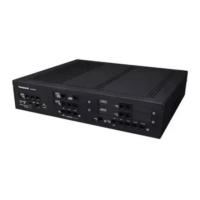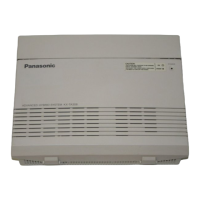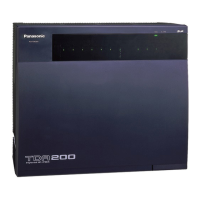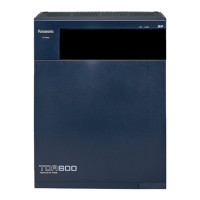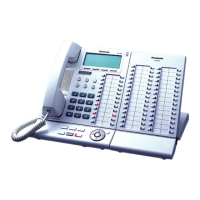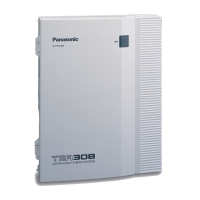• A company name or customer name can be assigned on a trunk port basis so that the operator or extension
user
can view the destination that the external caller is trying to reach before answering. This is useful, for
example, when multiple companies share the same operator.
• It is possible to identify the trunk ports that have trunks connected. This prevents extension users from
originating a call to a trunk that is not connected.
PC Programming Manual References
9.23 PBX Configuration—[1-1] Configuration—Slot—SLC2 - Port Property—
Connection
9.25 PBX Configuration—[1-1] Configuration
—Slot—Port Property - LCO Port—
Connection
9.27 PBX Configuration—[1-1] Configuration
—Slot—Port Property - BRI Port—
Connection
9.28 PBX Configuration—[1-1] Configuration
—Slot—Port Property - PRI Port—
Connection
10.6.1 PBX Configuration—[2-6-1] System—Numbering Plan—Main—Features
→ Idle Line Access (Local Access)
→ Trunk Group Access
→ Single CO Line Access
10.7.2 PBX Configuration—[2-7-2] System—Class of Service—External Call Block
11.1.1 PBX Configuration—[3-1-1] Group
—Trunk Group—TRG Settings—Main—
Line Hunting Order
11.1.2 PBX Configuration—[3-1-2] Group—Trunk Group—Local Access Priority
12.1.4 PBX Configuration—[4-1-4] Extension
—Wired Extension—Flexible Button
→
Type
→ Parameter Selection (for Single CO)
→ Parameter Selection (for Group CO)
12.2.3 PBX Configuration—[4-2-3] Extension—Portable Station—Flexible Button
→ Type
→ Parameter Selection (for Single CO)
→ Parameter Selection (for Group CO)
16.1 PBX Configuration—[8-1] ARS—System Setting— ARS Mode
18.1 PBX Configuration—[10-1] CO & Incoming Call—CO Line Settings
—
CO Name
Feature Guide References
2.21.2 Flexible Buttons
5.1.1 Class of Service (COS)
User Manual References
1.2.1 Basic Calling
110 Feature Guide
2.5.5 Seizing a Line Features

